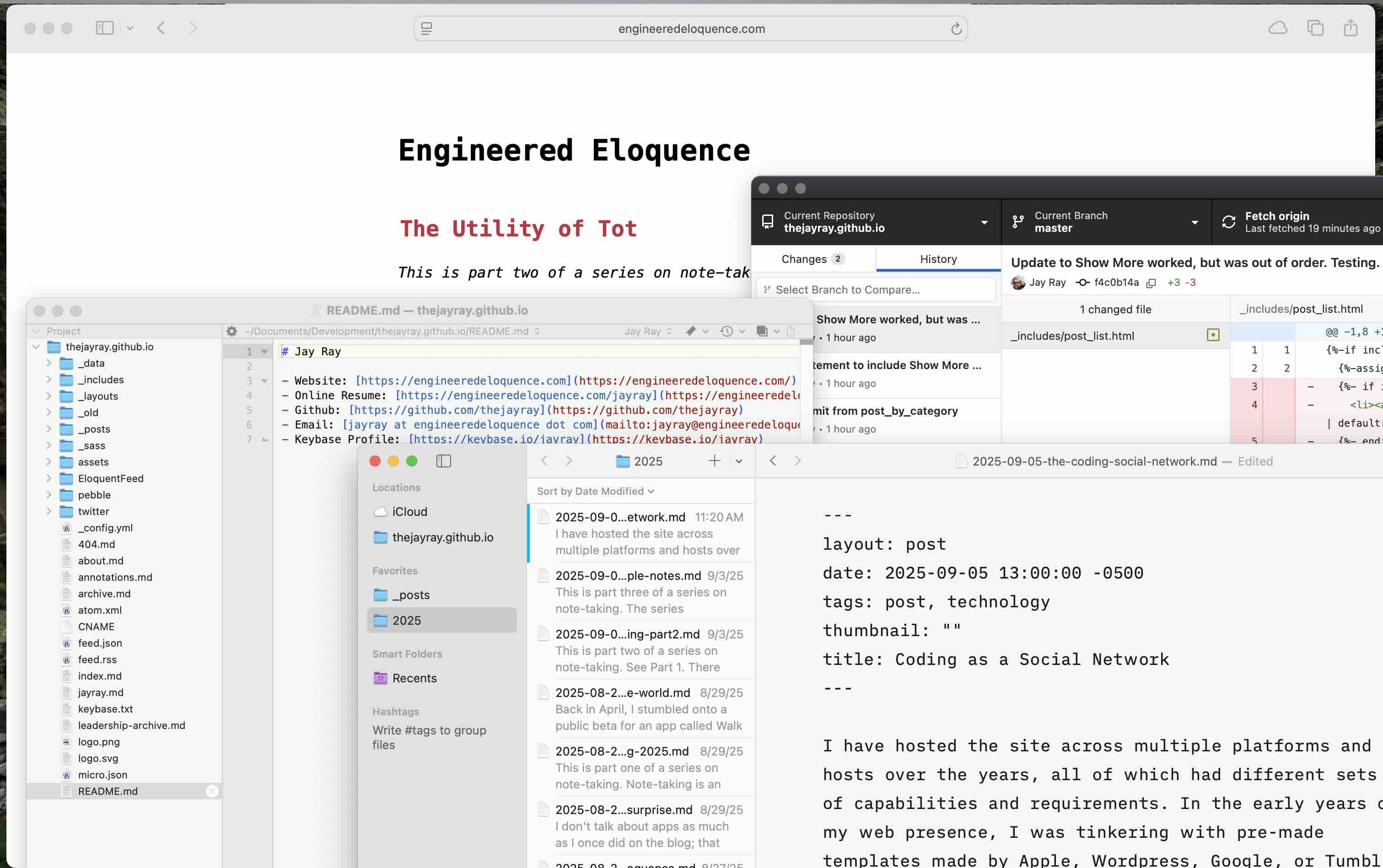Coding as a Social Network
I have hosted the site across multiple platforms and hosts over the years, all of which had different sets of capabilities and requirements. In the early years of my web presence, I was tinkering with pre-made templates made by Apple, Wordpress, Google, or Tumblr. Slowly but surely, I started building my own websites from scratch and eventually migrated the site from Tumblr to GitHub Pages.
GitHub Pages, which is built on the Jekyll static website generator, (and Blot.im similarly) use templating engines to create their sites (Liquid for GitHub and Mustache for Blot), which allow for simpler website structures behind the scenes but consistent website output page to page; I work in Jekyll/Liquid for my own site and Mustache for Nash's, but the idea for both is that the code is portable, shareable, and to some extent social.
One of the hallmarks of GitHub has always been the idea that you are posting code to the world, sharing apps, website code, or even just snippets of text with licensing guidelines and the hope that other coders will engage with you in a conversation about what you are working on. Github users are able to follow other developers and contribute to projects they are working on; I have always approached this passively, but recently I have seen the utility in engaging in the creation process in this way.
Nash and I have always approached the work we do on his site collaboratively; he creates content and guides the direction of the design, I implement most of the code and guide website best practices. Blot is a great platform in many ways, especially simplicity, but out of the box isn't intended to be used in this way; it is not as good as Git (the underlying protocol that makes GitHub work) at version control and reversion processing. In this most recent round of work on Nash's site, we have felt those differences more than ever. Nevertheless, our relationship has always been defined by the idea of making the process of building and maintaining a website more social.
My site is built on GitHub Pages with a lightly modified No Style, Please template. Just like my penchant for beta testing apps, I like to play with web technologies like this, but I had never had an occasion to actively engage and contribute to the betterment of a GitHub repository that was not my own. I recently noted an unexpected behavior (not sure if I would call it a bug) in the template, so I opened an issue on the repo, received a response with a clue about the behavior, tested the response, updated my personal code, and shared back to the issue the code that worked for me to make the template behave in the way I expected it to.
All of this was seamless and unexpectedly fulfilling. But it was also part and parcel of the work that Nash and I do together on a much grander scale. I am not sure that I will start scouring GitHub for places that I can contribute, but I will be more open to the idea of code as a means of engaging socially on a larger scale. I also wouldn't have necessarily considered GitHub a social network in the past, but admittedly, this interaction was a step in that direction for me.
